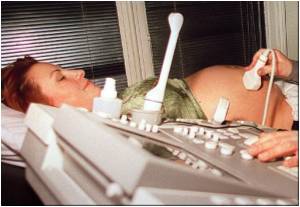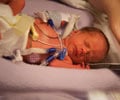A sample of the pregnant mother's blood can tell everything there is to know about a fetus's genetic make-up, scientists have discovered, said a study released on Wednesday.

Those techniques, such as amniocentisis and chorionic villus sampling, presented a dilemma to expectant moms, particularly among older women who want to screen for chromosomal abnormalities that can increase in likelihood along with maternal age, such as Down syndrome.
But according to researchers in Hong Kong, whose work was published in the US-based journal Science Translational Medicine, the entire fetal genome can be glimpsed floating in the mother's blood.
Fetal DNA makes up about 10 percent of a pregnant woman's blood plasma.
But because DNA molecules in the plasma exist in fragments, piecing together which ones belonged to the fetus proved technically difficult.
Lead author Dennis Lo and his team discovered in 1997 "floating" DNA from the fetus in the mother's blood, and laboratories have widely used this technique to test for gender as well as fetal genetic and chromosomal disorders.
Advertisement
The latest research isolated fetal genetic signatures in the floating DNA, then compared its characteristics against the genetic maps of the mother and father.
Advertisement
"Before the present work, it was not clear whether the entire fetal genome is represented in maternal plasma," wrote Lo.
"This information is important because it demonstrates that a noninvasive genome-wide scan of the fetal genome from maternal plasma is possible."
Lo said the method of identifying nucleic acids in the plasma could also help in the fields of cancer diagnosis and tissue transplants.
"It would be interesting to investigate whether key features of the high-resolution size profile for circulating fetal DNA can also be seen in circulating tumor DNA and donor graft-derived DNA," the study said.
Source-AFP













